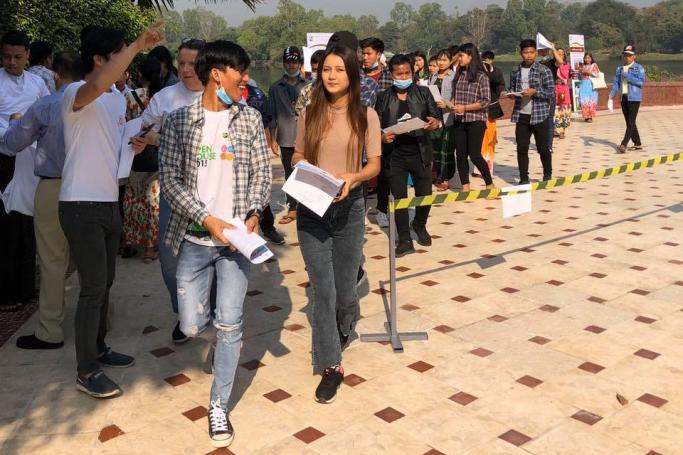The diplomatic missions of Denmark, Finland, Norway and Sweden to Myanmar, are organizing their annual Nordic Day Event on 14 February. The topic of this year’s Nordic Day is Mobilization of Young Voters.
Voting and the electoral process is core to a functioning democracy. There is a consensus among political scientists that democracies perform better when more people vote. It is therefore critical that as many eligible voters as possible, make use of their right to vote. In many countries, however, low voter turnout remains a significant challenge.
Low voter turnout is a societal problem in itself. In addition, international studies show that voter turnout varies significantly between different demographic groups. The groups affected by low voter turnout are different from country to country, but a common thread across the globe is that young, first-time voters are particularly challenging to mobilize. In the Nordic countries’ statistics show that youth in their early 20s have the lowest turnout. Low voter turnout among youth is also a challenge in Myanmar.
There are many reasons that young, first-time voters don’t vote. When asked why they did not choose to vote, Nordic youth say lack of knowledge about the different political parties and not believing that one’s vote will make a difference. Some youth also say that they do not have time to vote, or that they were away from home on Election Day. Some youth claim that they did not vote because they have no interest in politics.
When asked the same question, Myanmar youth explain that lack of time and the need to prioritize studies or working for a living are reasons for not voting. Myanmar youth also say that they find it challenging to obtain sufficient information on the many political parties and how to differentiate between them.
From a political perspective, successfully mobilizing young, first-time voters gives long term rewards. Studies show that individuals who participate in elections when they are young, are more likely to continue voting later in life. If, on the other hand, a habit of voting is not established at a young age, it is less likely to be formed at all. It should therefore be a priority to ensure that young, first-time voters make their voices heard by voting.
In the Nordic countries, the political parties have established parallel political youth organizations, “youth wings”, to encourage the participation of youth and to increase voter turnout among young, first-time voters. These youth wings make it possible to gain political experience at an early age, and they play a significant part in strengthening the voices of youth in politics. Youth wings educate their members and prepare them to take on roles in politics in the future, and they are therefore an essential recruiting platform.
In the Nordic countries, many young people enter the political arena early, thanks to the youth wings. Some take on key political or advocacy roles at an early age. Swedish climate activist Greta Thunberg is only 17. The youngest member of the European Parliament is a 21-year-old Dane. Norway’s youngest mayor is 22 years old. Finland’s Prime Minister is only 34 years old – which makes her the world’s youngest state leader.
This year, 2020, is an election year in Myanmar and a pivotal moment in the country’s ongoing democratization process. Myanmar will have almost 4.8 million first-time voters in the upcoming election this fall. By comparison, the populations of Denmark, Finland and Norway are respectively 5.6, 5.5 and 5.5 million. Mobilizing Myanmar’s young, first-time voters to use their right to vote, is important in and of itself, but it is also an important investment in the future. By building habits of democratic participation in young, first-time voters, Myanmar is building the foundations of its democracy of tomorrow.
The diplomatic missions of Denmark, Finland, Norway and Sweden to Myanmar strongly believe in the importance of mobilizing young, first-time voters. Because of this, the four missions have chosen Mobilization of Young Voters as the topic of this year’s annual Nordic Day Event on 14 February. The event is a joint effort of the four Nordic missions in Yangon to increase awareness about the Nordic countries and our activities in Myanmar.
As a part of our Nordic Day 2020, we have invited university students from across Myanmar to an interactive discussion on young voter mobilization. The aim is to gather students, who are also young, first-time voters, to learn about and generate action points concerning elections and youth participation in political processes. Our young diplomats will also share Nordic experiences about youth wings and on how to mobilize young, first-time voters. We believe that including young people in political discussions is crucial, in part because their interests are often different from those of older voters.
As Myanmar prepares for its 2020 election, the Nordic countries strongly encourage the people of Myanmar, and in particular young, first-time voters, to strengthen Myanmar’s democracy by using their votes!
This op-ed was written jointly by the heads of the Nordic diplomatic missions in Myanmar.












